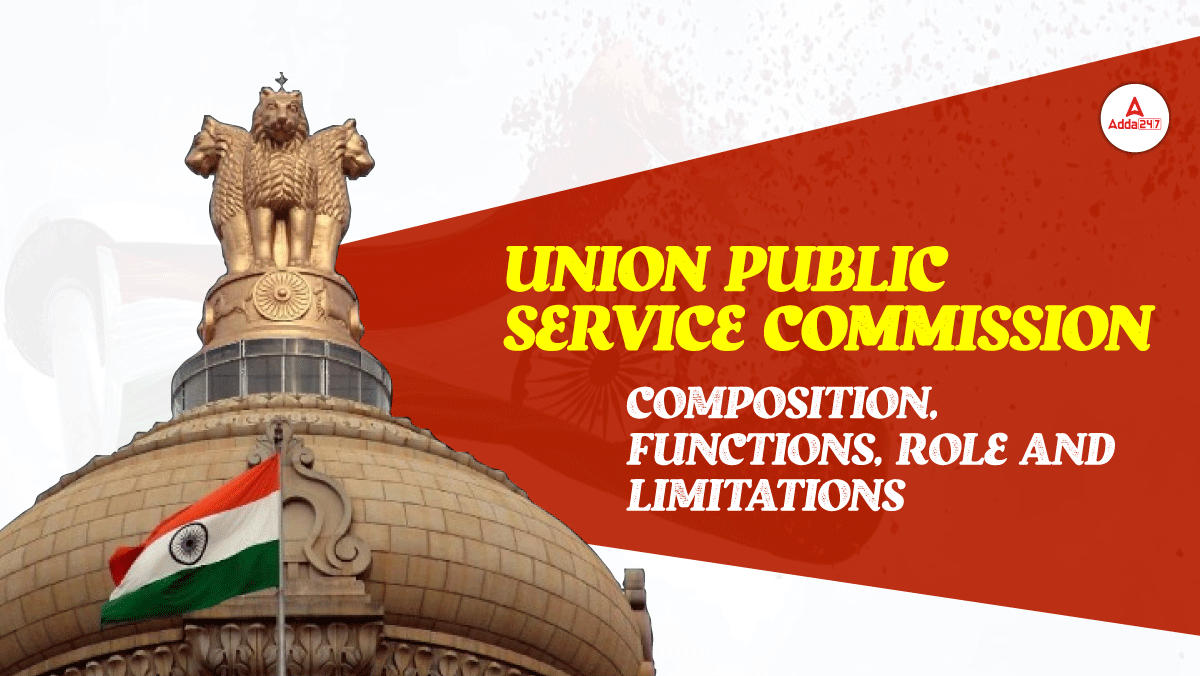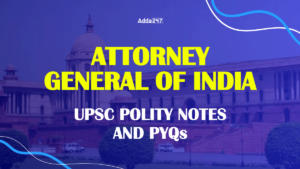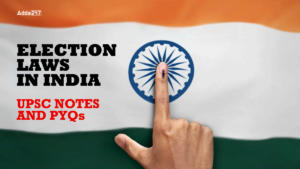Table of Contents
UPSC is the central agency which holds responsibility to conduct 14 major recruitment exams for recruitment of top officers, in order to excel the administration working, it is also one of the constitutional bodies established directly under Article 315 to 323 in part XIV of Indian Constitution, In this article we will be discussing about the composition, removal of members, independence, power and functions of UPSC.
Before studying about the structure and composition of UPSC as an independent constitutional body lets take an overview on the emergence of the UPSC, After India gained independence in 1947, the need for a recruitment system was felt which led to the establishment of the Federal Public Service Commission, which was later renamed as the Union Public Service Commission (UPSC) under the Constitution of India in 1950.
Composition of UPSC
The composition of UPSC consist of 1 chairman and other member, we will further discuss about the Composition of UPSC in detail,
- UPSC chairman and members are appointed by The President.
- Strength of Commission is determined by discretion of The President.
- Usually there are 9 to 11 members.
- The chairman and the members hold office for 6 years or until they attain age of 65 years.
- The constitution doesn’t prescribe any qualification about the members, but yes it is mandatory that half of the members should have had held the office either under Union Government of India or State government for at least 10 years.
- Both chairman and member can resign from the office by submitting their resignation to the President.
- President may appoint a member as acting chairman of UPSC if the office of chairman is vacant or he/she is unable to perform their functions.
Also it should be noted that they can be removed before the expiry of their term by the President.
Removal of UPSC Chairman and Members
The President can remove Chairman and any other member of UPSC in the following cases
- If during the term of service he/she holds any office of profit, i.e. if they are engaged in any paid employment.
- If he/she is adjudged an insolvent (Gone Bankrupt)
- If he/she is, in opinion of The President, unfit to continue on office by reasons of mind and body.
- If there has been a case of misbehavior, President can refer the case to the Supreme Court for an enquiry and based on the findings the president has to take action.(The advise of Supreme Court is binding in this regard)
UPSC : An Independent Constitutional Body
UPSC is one of the Constitutional Bodies, and We have already studied under Salient Features of Indian Constitution that how the constitutional bodies work independently in India.
- As discussed above, chairman and members can only be removed by the president under the mentioned circumstances so they enjoy a fixed tenure.
- The conditions of service can’t be varied to disadvantage of chairman and members during their tenure of service.
- Both the chairman and members are not eligible for further appointments in government offices, though member can be promoted to the chairman.
- The chairman and member are not eligible to re-appointment to same office after completion of their first term unlike the members of election commission.
Now that we have discussed about the independence of UPSC, lets further discuss about the functions performed by the Union Public Service Commission
Functions of UPSC
Here we will be discussing the functions performed by UPSC as an independent constitutional body, below mentioned are the functions of UPSC
- It is responsible to conduct examinations for recruitment of All India Service and other services.
- It assists states in framing polices with regard to the recruitment process.
- It serves all needs of state on request from governor with approval of the President.
- It is also consulted for matters relating to extension of service or re appointment (This provision is directory not mandatory)
- UPSC presents an annual report on performance to the President.
- This report is further presented to both the houses, and the reason is stated for non-acceptance of UPSC advises, all these cases of non-acceptance is required to be approved by the Appointment Committee of the Union Cabinet.
Individual department or ministry has no power to reject the advise of UPSC.
Limitations to UPSC
UPSC doesn’t have authority over the following;
- Making reservations or posts in favor of backward classes.
- In selections for chairman and members of commission or tribunals.
- In selection of temporary appointments (which may last for less than 1year)
- The President can exclude posts and matters from the purview of the UPSC.
- But all such regulations made by the President should be presented before each house, parliament can repeal or amend those.
Role of UPSC
Now that we have discussed about the functions and limitations of the UPSC, lets also understand about the roles of UPSC.
- It is considered to be the ‘watch-dog of the merit system’ in India.
- Advises government on matters related to discipline and promotion.
- It is also responsible for cadre management and training.
Articles related with UPSC
| Article no. | Subject |
| 315 | Public Service commission for the union |
| 316 | appointment and term of members |
| 317 | Removal and suspension of member |
| 318 | Regulations for conditions of service members |
| 319 | Prohibition to holding any office of profit |
| 320 | Functions of public commissions |
| 321 | Power to extend functions of public commissions |
| 322 | expenses of public commissions |
| 323 | Reports of public commissions |
| ALSO READ | |
| UPSC Indian Polity Notes | Making of the Constitution |
| Judicial Reforms | Devolution of Power and Finance |
| UPSC Indian History Notes | UPSC Indian Geography Notes |



 Attorney General of India UPSC Notes (Ar...
Attorney General of India UPSC Notes (Ar...
 Election Laws in India UPSC Notes
Election Laws in India UPSC Notes
 Indian Parliamentary Forums UPSC Notes
Indian Parliamentary Forums UPSC Notes
